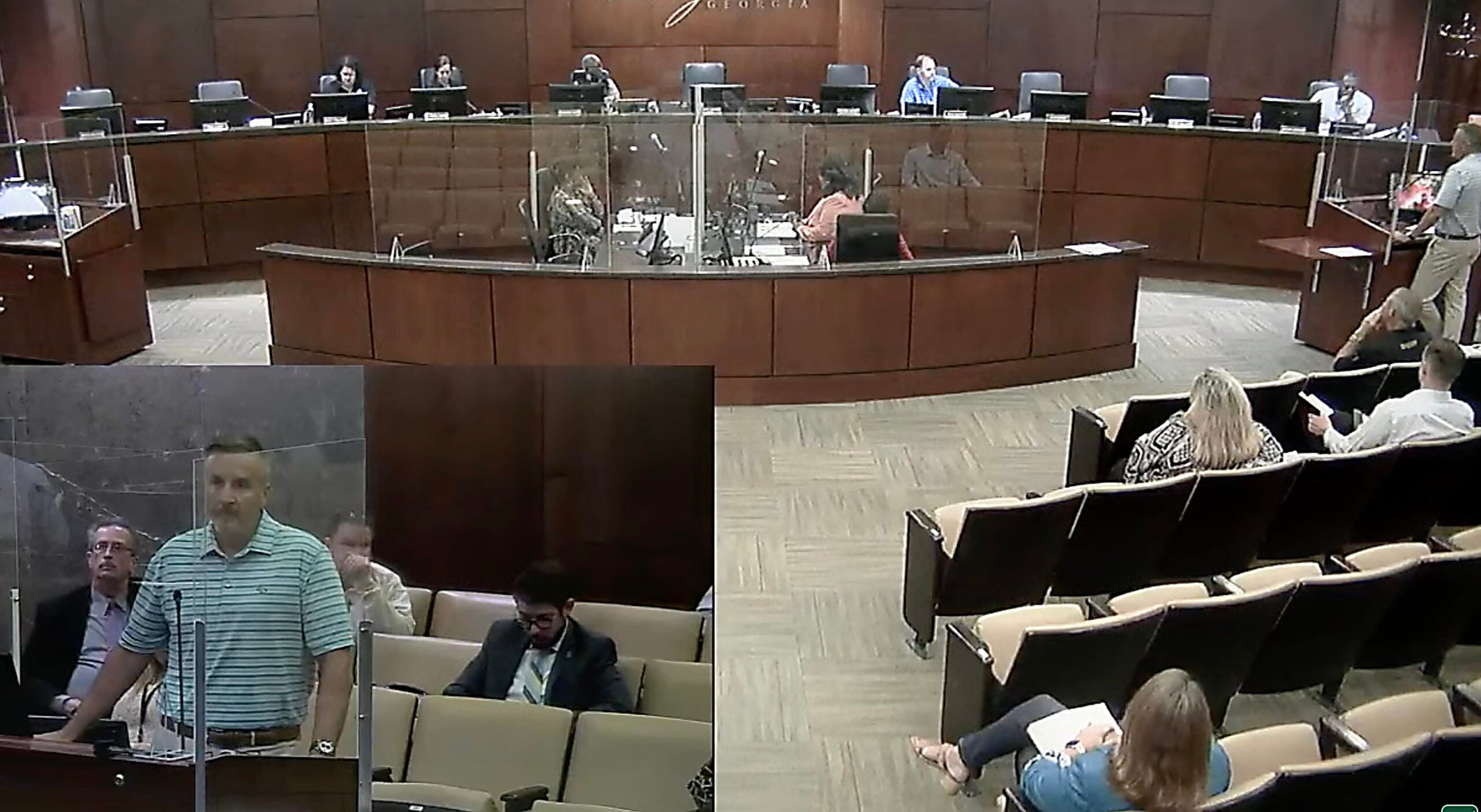Augusta probably won’t be adopting anything like Columbia County’s panhandling ordinance, after a senior staff attorney declared it largely unconstitutional. But the city could attempt to ban certain activities on public rights-of-way tied to the practice.
“The law department believes that passing the Columbia County ordinance without serious modifications is unwise,” attorney Sam Meller said.
Since 1999, courts have largely determined that most begging for money is protected speech, including bans on “aggressive” panhandling outside cafes or ATMs, Meller said.
Commissioner Sean Frantom brought Columbia County’s ordinance to the commission in an effort to address various complaints about the activity which greets many as they exit expressways into Augusta. The ordinance bans most panhandling on public rights-of-way and on private property without the owner’s consent.
The University of Georgia Law School’s First Amendment Clinic, which shut down Augusta’s prior panhandling ordinance in 2021 with a warning letter, has received no other complaints about county ordinances and issued no similar letters, Director Clare Norins said.
“The focus that the law department recommends is on the subsidiary activity that the commission wishes to regulate,” Meller told five commissioners who attended a Wednesday workshop on potential solutions.
Lt. Robbie Silas of the Richmond County Sheriff’s Office said his office uses a state law ban on soliciting in a roadway to cite offenders, most of whom he said are not actually homeless.
“Ninety-nine percent of these folks who are doing the panhandling are not homeless,” Silas said. “They come from the Maxwell House, they come from the Richmond Summit, they come from the Bon Air,” Silas said.
In addition to the low-income housing complexes, Silas said church groups from miles away will solicit on Augusta streets, without required permits from the sheriff’s office.
Shawn Rhodes, lieutenant over code enforcement for the Richmond County Marshal’s Office, said officers were seeing unfamiliar faces on Augusta’s streets, and the visitors are spreading beyond the city’s gateways.
“We are seeing people coming from out of town, gathering up the resources we should be giving to our folks, and going back to wherever,” she said.
Interim City Administrator Takiyah Douse said Charleston, S.C. has an ordinance against passing items from vehicles on a roadway that might work in Augusta. But any ordinance requires enforcement to be effective.
“Right now we’re facing some enforcement challenges,” she said.
Chief Deputy Marshal Scott Peebles said enforcement can be a challenge depending on the judge, typically a magistrate judge, who hears the case.
“Judges have literally berated our officers and handed the defendant money from the stand. Our officers are humiliated,” Peebles said.
A program Augusta is trying to implement based on one used in Savannah asks the public to donate to programs that help those in need rather than to the panhandlers themselves, Public Information Officer Danielle Hayes said.
“Give change that counts” would funnel donations to Augusta nonprofits, she said.
But the city has no say in how Augusta nonprofits spend the funds, Douse said.
In any event, panhandlers are leaving a negative impression on visitors to Augusta, said Jennifer Bowen with Destination Augusta, the convention and visitors bureau.
“Panhandling is having an economic impact on the city of Augusta,” particularly in the Washington Road-Stevens Creek Road corridor, Bowen said.
“The first impression of Augusta as they exit the interstate is a panhandler,” she said. “They’re canceling reservations and going elsewhere.”
The potential visitors leave negative reviews online that are difficult to overcome, she said.











